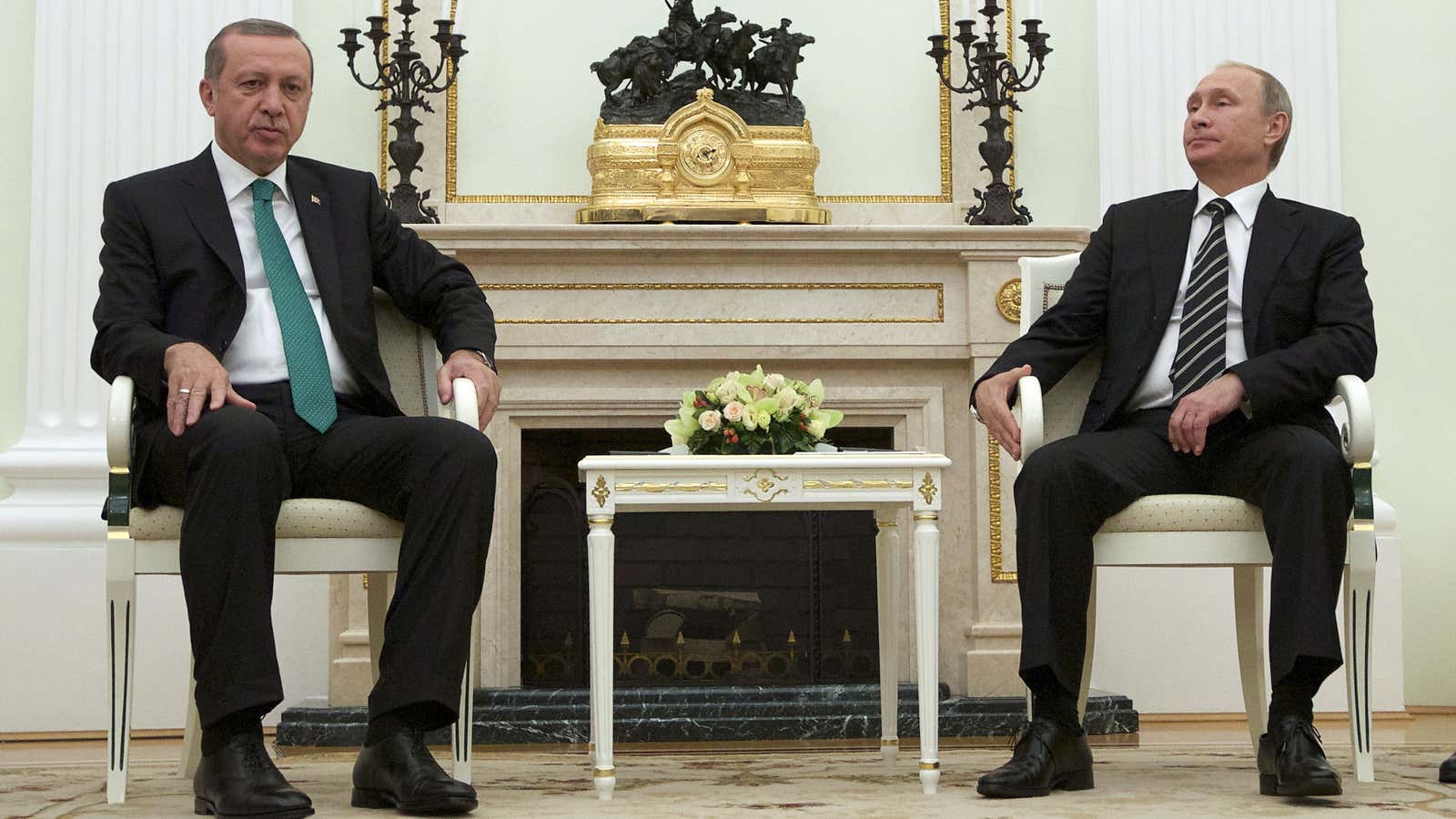If one person is benefiting from the European refugee crisis, it’s Turkey’s president, Recep Tayyip Erdogan. Last month, he secured billions of euros in foreign aid, visa-free EU entry for Turkish citizens, and promises for renewed attention to Turkey’s EU accession process, which has now been dragging along for 29 years.
His leverage? As the main transit route for refugees from the Middle East to the EU, Turkey controls the taps regulating the flow of Syrian migrants to Europe. Last month it agreed to keep them closed in return for the aforementioned concessions. But Erdogan wants more.
Not content with suppressing dissent at home (paywall), he’s now trying to export his censorship by going after a comedian, Jan Böhmermann, who made fun of him on German TV. This week, to general fury, chancellor Angela Merkel okayed Böhmermann’s prosecution under an obscure German lèse-majesté law. Though the case will likely fail, the fact that it’s going ahead at all demonstrates the Turkish leader’s growing clout.
In his strong-arming of the EU, Erdogan is starting to look remarkably like another authoritarian leader with an EU border: Vladimir Putin. Russia, too, controls taps—in this case, for the supply of natural gas—and has used that leverage to get its way in Ukraine. But the EU has ways to at least reduce its dependence on Russian gas; it can’t do much about the conflicts creating the flood of refugees. And Turkey has the added clout, unlike Russia, of being a NATO member.
So if Erdogan is this Putinesque when he’s still trying to join the EU club, what will he want once he’s in it? Europe’s leaders had better figure that out while they still have some leverage left.
This was published as part of the Quartz Weekend Brief. Sign up for our newsletters here, tailored for morning delivery in Asia, Europe & Africa, and the Americas.




